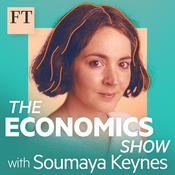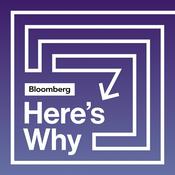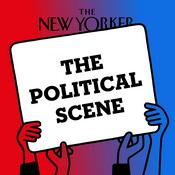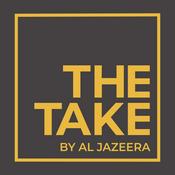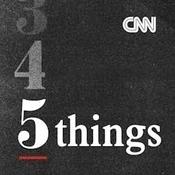45 episódios
- In this episode, I talk about the recent death of my beloved dog, Aasrija, the goodest girl who ever lived, and how this proved to be a powerful draw toward beliefs in the souls and afterlife, and the importance of rejecting that pull.
After all, emotions aren't a valid pathway to truth.
Rest in peace, Aasrija. You were the best. Celebrating Children's Fear: How 'Protect the Kids' Became a War Cry for Child Abuse | Free Talk Cast #44
02/9/2025 | 11minWhen the Turmelle family fled New Hampshire with their transgender daughter because they no longer felt safe, some people celebrated. The Libertarian Party of New Hampshire literally tweeted that the more "in danger" trans people feel, the "freer" the state becomes. These are the same people who claim their anti-trans policies are about "protecting children."
In this episode, Aria breaks down the moral bankruptcy of selective child protection, how "save the children" only applies to certain children, while others are told to be afraid, driven from their homes, and denied medical care. As a transgender woman who understands the impossible choices these families face, Aria exposes the hatred masquerading as love and the authoritarianism disguised as freedom.
We face countless choices every day between love and fear. The people celebrating children's suffering have made their choice clear. What choice will you make?
This is about more than trans rights; it's about whether we create a world where all children feel safe, or just the ones who conform to someone else's checklist. It's about whether freedom means liberty for all, or comfort for the majority.The Epstein Files Cover-Up: Cameras, Guards, and Government Lies | Free Talk Cast #43
31/7/2025 | 25minIn this explosive episode, Aria exposes the Trump Administration's blatant cover-up of the Jeffrey Epstein files. After promising full transparency and claiming client lists were "sitting on my desk," Attorney General Pam Bondi now says the files never existed, despite briefing Trump in May that his name appeared in them.
But the lies go much deeper. Aria breaks down the impossible circumstances of Epstein's death: guards who "fell asleep" for eight hours while browsing furniture websites, cameras that "malfunctioned" at the exact moment of his suicide, missing cellmates, and surveillance footage that was "accidentally" deleted--not once, but twice.
The Trump administration promised to release "raw, unedited+ video to prove Epstein killed himself. Instead, they released footage edited in Adobe Premiere Pro with nearly three minutes missing. When questioned, Bondi admitted the video was 'not conclusive' while claiming it proved suicide.
This isn't just about Epstein; it's about how power protects itself in America. From deleted evidence to falsified prison records to guards getting community service for enabling the death of the most important prisoner in federal custody, this episode reveals the systematic corruption that ensures the powerful never face consequences.
Whether you believe Epstein was murdered or think the official story is true, the pattern of lies, contradictions, and "coincidences" surrounding this case should terrify anyone who cares about accountability and just how much bullshit the government thinks you'll put up with.- In this provocative episode, Aria tackles the shocked reactions to Sean 'Diddy' Combs' acquittal on most charges—and explains why your surprise reveals everything wrong with how we think about justice in America.
If you were surprised by the verdict, ask yourself: what evidence did you actually see? Did you attend the trial? Read court documents? Or did you just absorb media coverage of allegations and assume that being charged equals being guilty?
Aria breaks down the dangerous mindset that confuses accusations with evidence, and why the same people expressing shock at Diddy's acquittal would make terrible jurors in a criminal case. This isn't about defending Diddy's character or lifestyle—it's about defending the principle that allegations aren't evidence, charges aren't convictions, and media narratives aren't trials.
From the presumption of innocence to the difference between courtroom facts and media speculation, this episode exposes how trial by headline has replaced actual justice in the public mind. Whether you think Diddy is guilty or innocent, this discussion will challenge how you think about criminal cases and why your emotional reactions to verdicts might reveal more about your biases than the defendant's guilt.
A must-listen for anyone who wants to understand why being charged isn't the same as being convicted—and why that distinction matters for everyone's freedom. - In this eye-opening episode, Aria exposes the dark psychology behind modern advertising and how marketers use sophisticated manipulation techniques to bypass your rational decision-making. From exploiting cognitive biases like anchoring and scarcity to weaponizing social pressure and fear, advertisers employ teams of psychologists to hack your brain's evolutionary shortcuts.
Drawing connections to her recent article about gaming psychology, Aria breaks down how the same techniques that make video games addictive are deployed thousands of times daily through advertising. She explores real psychological research from experts like Daniel Kahneman, Robert Cialdini, and B.F. Skinner that advertisers have weaponized to manipulate everything from your pricing perceptions to your dopamine responses.
This isn't just about recognizing when you're being sold to - it's about understanding how surveillance capitalism has turned your attention itself into a product. From fake scarcity tactics and decoy pricing to the deliberate addiction mechanics of social media platforms, this episode reveals the systematic psychological warfare being waged against your consciousness.
Whether you want to understand why you make certain purchasing decisions or simply maintain some mental autonomy in a world designed to manipulate you, this episode provides the knowledge you need to fight back against the attention merchants.
Mais podcasts de Notícias
Podcasts em tendência em Notícias
Sobre Free Talk Cast
A podcast by LRN.FM
Site de podcastOuça Free Talk Cast, Medo e Delírio em Brasília e muitos outros podcasts de todo o mundo com o aplicativo o radio.net

Obtenha o aplicativo gratuito radio.net
- Guardar rádios e podcasts favoritos
- Transmissão via Wi-Fi ou Bluetooth
- Carplay & Android Audo compatìvel
- E ainda mais funções
Obtenha o aplicativo gratuito radio.net
- Guardar rádios e podcasts favoritos
- Transmissão via Wi-Fi ou Bluetooth
- Carplay & Android Audo compatìvel
- E ainda mais funções


Free Talk Cast
Leia o código,
baixe o aplicativo,
ouça.
baixe o aplicativo,
ouça.











